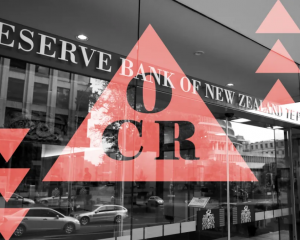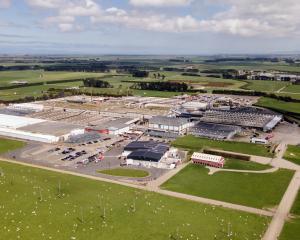New Zealand's ''rock-star economy'' status is behind us, according to Forsyth Barr broker Peter Young. Business editor Dene Mackenzie reports.
New Zealand's rock-star economy status had been under pressure since dairy prices started falling and economic growth increasingly relied on immigration and housing construction in Auckland and Christchurch.
Forsyth Barr broker Peter Young said activity was slowing, with transport operators already signalling weaker activity.
This week, global dairy prices fell further, with forecasts the 2016 payout will be closer to $4 per kilogram of milk solids than $5.
Inflation is weak, prompting calls for the Reserve Bank to cut interest rates next week, in September and again in December.
Mr Young said in the three months ended June, New Zealand shares gave back some of the strong performance the market delivered in the first quarter.
Earnings growth on a 12-month forward basis continued to be positive but the level of growth had pulled back from 9% to 7%.
The biggest change had been to sentiment towards New Zealand and potentially New Zealand shares.
Expectations of further dollar weakness added to additional risk, particularly given New Zealand shares continued to trade at premiums to historic averages and to global comparatives.
''With the Reserve Bank cutting the official cash rate earlier, then economic growth missing market consensus estimates, we believe this could precipitate a change in foreign investment flows.''
Shareholder notices since March 2015 suggested there were early signs foreign investor momentum had turned negative, Mr Young said.
The number of companies which were being sold by foreigners narrowly outnumbered those being bought.
Aggregate flows were dominated by sales of a few large companies including: Fonterra, Fisher & Paykel Healthcare and Trade Me.
''We believe we are approaching a tipping point and that we should expect further contraction in the New Zealand equity market premium relative to global markets.''
The small size of the New Zealand equity market meant growth commanded a higher premium, but the level of growth relative to the broader sector might also explain some of the premium being paid for New Zealand growth companies, he said.
Elsewhere, the New Zealand equity market had shown attractive yield characteristics and the larger more defensive of those had benefited from foreign investment flows.
A less robust macro outlook and a weaker dollar were expected to change the perception, he said.
In an environment where global interest rates might begin to rise and where the kiwi continued to weaken, those bond proxies with the least earnings growth had the greatest capital value risk.
Utilities traded on higher multiples than their global comparatives, but Mr Young urged caution on the property and telecommunication sectors.
Analysis supported that view, suggesting investors had started moving away from high-yielding companies, shifting attention to those offering earnings growth and quality attributes.
''This is in line with our expectations that in an environment where bond yields are no longer falling, earnings growth should be preferred, as this provides at least some protection for foreign investors in a weakening New Zealand dollar phase.''
At a glance
New Zealand companies with above average earnings growth: A2 Milk, Delegat, Metlifecare, Mainfreight, Summerset, NZX, Abano Healthcare, SkyCity, Freightways, Ryman Healthcare, Meridian Energy, Diligent, Fisher & Paykel Healthcare and Port of Tauranga.












